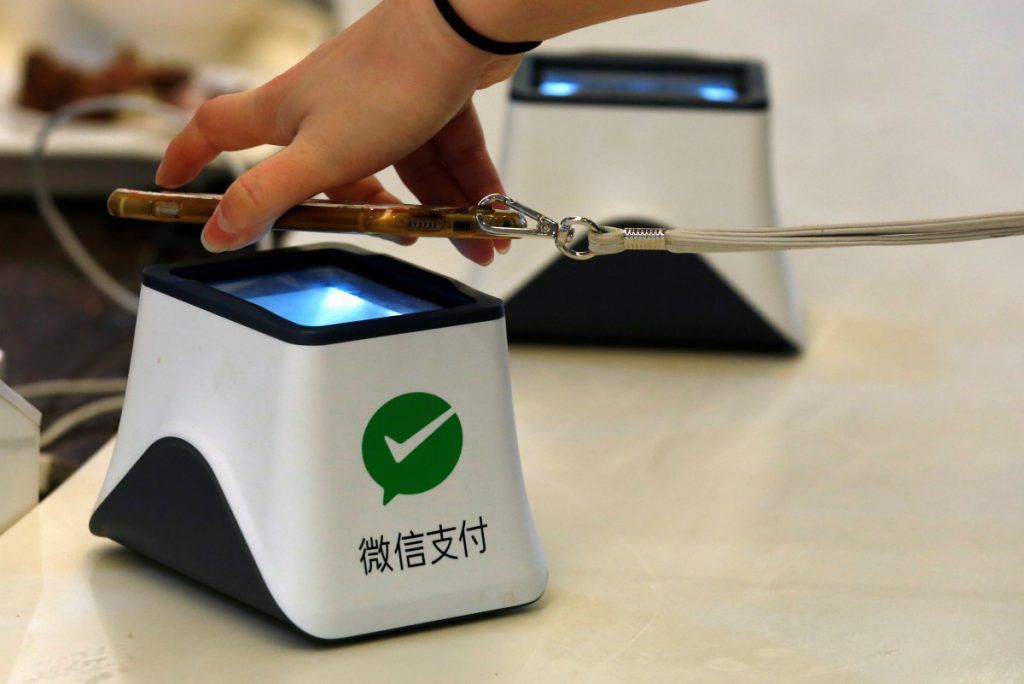
Traders in China are relying on their personal chat apps as it gives them fast access to their clients. Source: Shutterstock
Chinese traders are conducting transactions through personal chat apps
TRADERS AND BANKERS in China are taking an innovative approach to how they buy and sell financial assets by bringing social messaging platforms into the mix to boost productivity and connection.
According to a report on the matter by Bloomberg, players in China’s US$11 billion bond markets are relying on their personal chat accounts on Tencent’s WeChat and QQ to buy and sell despite efforts by regulators to curb the practice. However, efforts to tamp out the practice have been met by nonchalance by traders who are creating an “irreversible trend”, according to Hao Hong, Bocom International Holdings Co.’s chief strategist, to Bloomberg.
Hong conceded the fact that there were major risks in using such unregulated and personal channels to conduct highly sensitive transactions. In China, the use of social media for business tasks is not illegal, as compared to other developed markets where there are strict rules about record-keeping.
That’s not to say that China is totally absent when it comes to implementing such regulations with regards to record-keeping, but they’re far laxer than you would imagine they should be. China’s National Association of Financial Market Institutional Investors (NAFMII) has policies that require brokers to have “instant messaging records” on file for the last three months.

WeChat and its sister app, QQ, have become incredibly popular among Chinese traders as a medium of communication. Source: Reuters
The use of such social messaging platforms is pervasive throughout the East Asian nation, where they have become integrated with all facets of life, from music streaming, to payments. This is further complicated by the increased digitization of Chinese financial technology, where just about any asset can be easily bought from various e-commerce platforms. Chat channels are popular with everyone in China, not only the bankers, and are used to share information, photos, news, and as a form of payment.
The chat channel became popular among bankers because of the national culture where the details of a bond purchase are often agreed to in personal messages among all the relevant parties, without the inconvenience of email’s built-in lag.
“WeChat and QQ are more efficient in reaching people compared with making calls,” said Wang Ming, chief operating officer at Shanghai Yaozhi Asset Management Co., to Bloomberg.
“If you want to borrow or lend money, buy or sell a certain bond, just send it to the groups and when someone is interested you can then have a private conversation.”
What’s this created is a culture wherein various companies have different policies and stances when it comes to using personal chat apps to conduct their trades.

Though China has policies on record-keeping with regards to its financial industry practices, it’s not illegal to use WeChat to confirm transactions. Source: Pixabay
Some have said that their companies don’t have formal rules around the practice – some advise their employees to keep any deal-related communications confined to their company desktops so a record remains – while others, especially those from foreign firms such as Deutsche Bank and Credit Suisse, expressly ban the practice.
Alex Bouchardy, head of fixed income for Asia at Credit Suisse Asset Management, says doing business on social media isn’t something to take lightly.
“While the technology is facilitating the capital markets a lot, you still need certain processes, mechanisms, principles and compliance in place to account for trade confirmation settlement,” Bouchardy told Bloomberg.
“If you missed a trade, how would you tackle that?”
The concept may sound foreign to traders from overseas, developed nations, but it definitely reflects Asia’s increasingly mobile populations and shifting cultural attitudes. Traders in South Korea and Taiwan have similar practices: in the former, KakaoTalk is super popular, while LINE is king in the latter. Facebook Inc.-owned WhatsApp has gained a similar position for itself in South Asia.
READ MORE
- Strategies for Democratizing GenAI
- The criticality of endpoint management in cybersecurity and operations
- Ethical AI: The renewed importance of safeguarding data and customer privacy in Generative AI applications
- How Japan balances AI-driven opportunities with cybersecurity needs
- Deploying SASE: Benchmarking your approach






